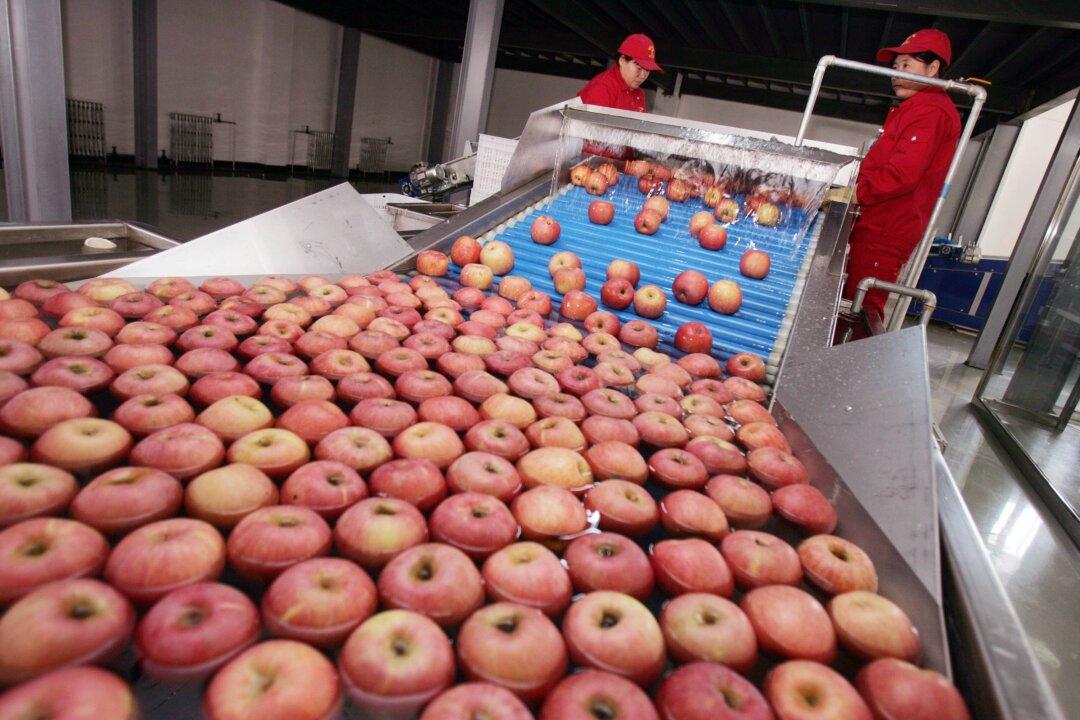A listed Chinese fruit-processing company has been using rotten apples to make its juice, 95 percent of which is destined for export to the United States, Canada, Europe, and other destinations, according to media reports in the province of Shandong.
The company named in the reports, Haisheng Fresh Fruit Juice, is listed on the Hong Kong stock market. It has seen its stock price fall in the past few days, as Chinese internet users sought to confirm the claims.





